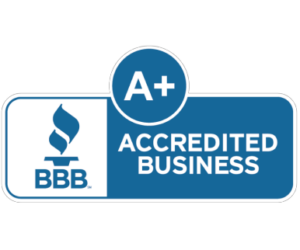The best commercial flooring can enhance the overall image of a business, contribute to a functional and safe working environment, and ultimately impact the bottom line. Therefore, businesses should carefully consider the specific needs of their commercial space when choosing the right type of flooring for their use.
Types of Flooring for Commercial Use
There are a multitude of flooring options to consider when installing for commercial needs. Commercial-grade linoleum is a durable and resilient flooring option that is perfect for high-traffic areas. It is made from natural materials like linseed oil, wood flour, resins, and pigments, making it eco-friendly and easy to maintain. However, it can be susceptible to scratches and dents in very busy spaces.
Options like vinyl, carpet, and ceramic are also popular for commercial settings. Vinyl tiles are affordable, easy to install, and come in a wide range of styles. However, they may not be as durable as other options. Carpet tiles provide comfort and insulation, but they can be harder to clean and maintain. Ceramic tiles are extremely durable and can withstand heavy foot traffic, but they may be more expensive to install.
Laminate flooring is a cost-effective option that mimics the look of hardwood or stone but may not be as durable as solid wood. Solid wood flooring is a timeless and luxurious choice for commercial spaces but may be more prone to dents and scratches. Engineered wood offers the same aesthetic appeal but with added durability, making it suitable for high-traffic areas in commercial settings.
Factors to Consider When Choosing a Commercial Flooring Option
When it comes to choosing a commercial flooring option, there are several important factors to consider. The type of commercial space, foot traffic, maintenance requirements, budget, and brand image all play a crucial role in the decision-making process. Understanding these key factors will help ensure that you select the right commercial flooring option for your specific needs, whether it’s for a retail store, office space, or industrial facility. Making an informed decision will not only enhance the aesthetic appeal of your space but also contribute to the overall functionality and longevity of the flooring.
Durability and Maintenance Requirements
When selecting flooring for a commercial setting, durability and longevity are paramount factors to consider, especially given the high foot traffic, impacts of machinery, and presence of heavy furniture and tools.
The flooring option should be highly resistant to heavy foot traffic and the impacts of machinery, making it ideal for commercial settings. The flooring needs to withstand the weight of heavy furniture and tools without easily denting or scratching.
Overall, selecting a flooring system that can withstand high foot traffic, impacts of machinery, and heavy furniture and tools is essential for the longevity and success of a commercial space.
Foot Traffic in the Space
High-traffic zones within commercial settings, such as entryways, hallways, and retail areas, often experience heavy foot traffic. This constant flow of people can take a toll on the flooring in these areas, causing wear and tear, scuffing, and even damage over time. It’s crucial to choose a resilient flooring option for these spaces to withstand the impact of foot traffic and maintain its integrity.
If flooring that cannot handle heavy foot traffic is chosen for these areas, it can lead to increased repair and maintenance costs. The constant wear and tear may require more frequent repairs, leading to downtime and disruption of business operations. In addition, the overall appearance of the space may suffer, negatively impacting the customer experience and potentially deterring future business.
Aesthetic Appeal and Environmental Impact
Commercial flooring plays a significant role in the aesthetic appeal of a space, but it also has an environmental impact. By choosing sustainable and eco-friendly materials for flooring, businesses can contribute to a more environmentally friendly space.
In addition, certain flooring choices can contribute to energy efficiency. For instance, using carpet tiles made from recycled materials can help with insulation and reduce the need for excessive heating or cooling. Similarly, utilizing natural stone or ceramic tiles can help regulate indoor temperatures and reduce energy consumption.
Overall, selecting sustainable flooring options can enhance the aesthetic appeal of a commercial space while promoting environmental responsibility. It’s essential to consider factors such as sustainability, eco-friendly materials, and energy efficiency when choosing flooring for a commercial environment. By doing so, businesses can take a step towards creating a more environmentally friendly and visually pleasing space.
Cost and Installation Process
When selecting commercial flooring, it is essential to consider both the initial cost of the flooring system and the expenses related to installation and maintenance. The initial cost of the flooring system is an important factor, as it can significantly impact the overall budget for a commercial space. Additionally, there may be additional costs for installation, such as subfloor preparation or removal of existing flooring, which should be taken into account. Furthermore, maintenance requirements and upkeep expenses should be considered to ensure the long-term cost-effectiveness of the chosen flooring.
The installation process itself is also a crucial consideration, as it may involve hidden costs such as labor fees, equipment rental, or unexpected subfloor issues. It is important to thoroughly research and understand the installation process to anticipate any potential hidden costs. Additionally, the timeline for installation should be taken into account, as delays can lead to additional expenses and impact the overall project schedule.
Awards and Accreditations









